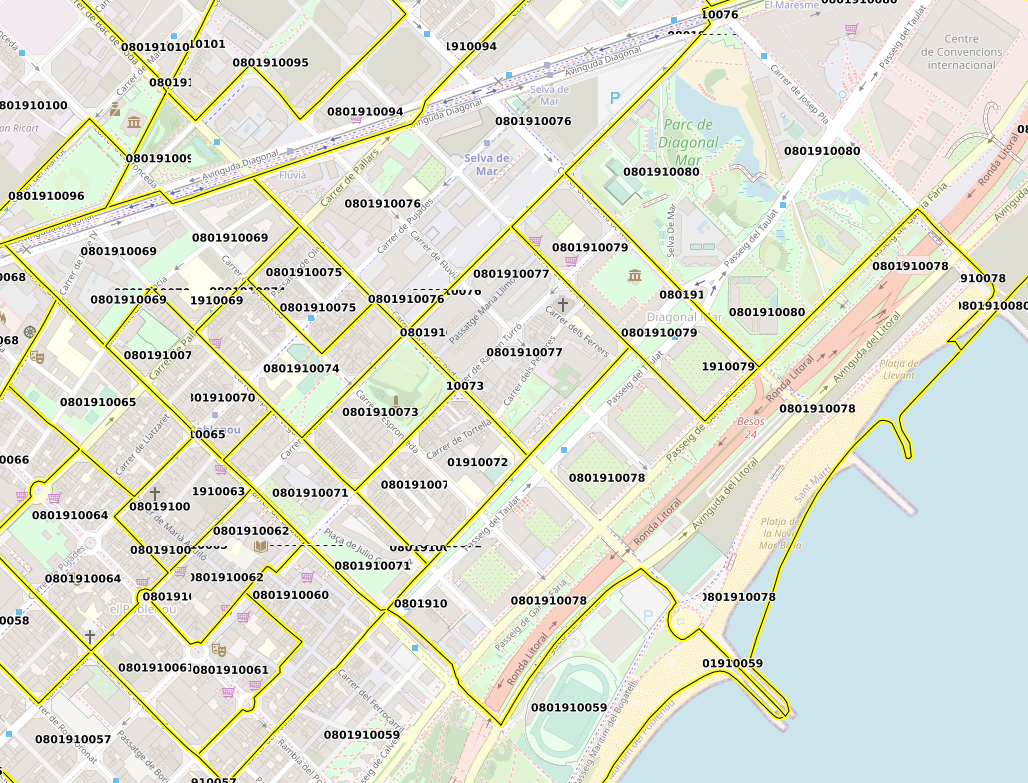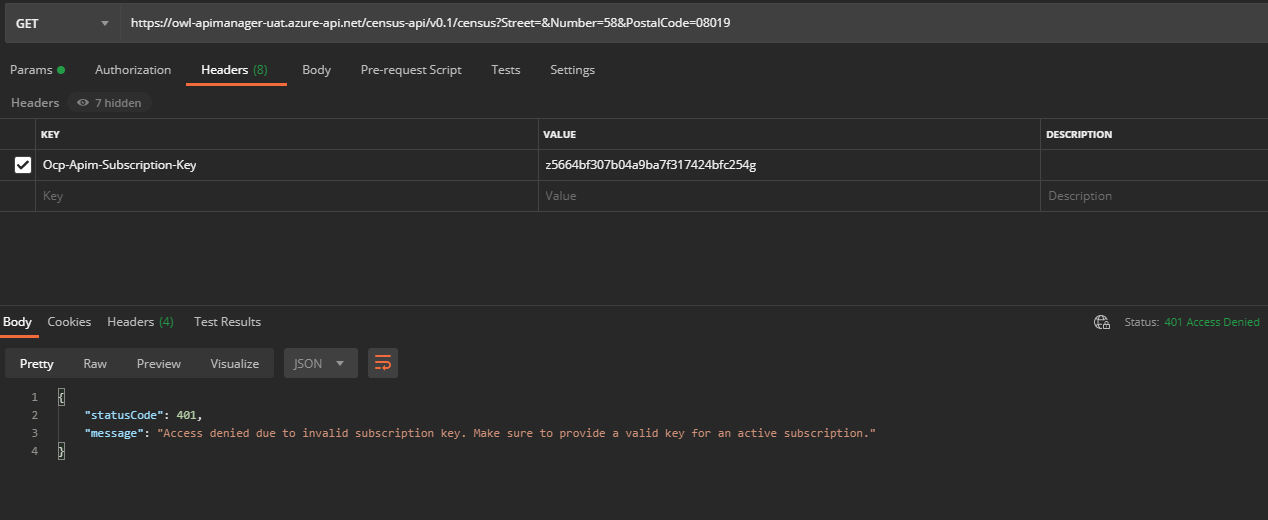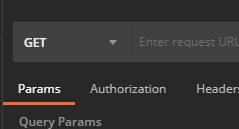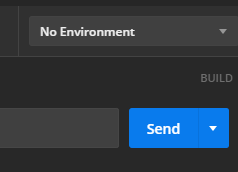
e-lab-gops-censuscode-dev
Version 3
INTRODUCTION
Census Code API is an API that allows a user to get a Census Code using a Postal Code and an address.
The domain of the current version is only for Spanish Census Code.
TABLE OF CONTENTS
In this documentation you will find:
- Getting Started
- Authentication
- Status and errors
- Examples
- Additional references
- Support
- Terms and conditions
CONCEPTS
Census Code
Census Code is a code corresponding to the minimal territorial municipality unit. This unit could be even smaller than a neighbourhood (for example, in big cities like Madrid or Barcelona). It usually contains between 1000 and 2500 inhabitants (except in the case that the municipality is smaller) and it is used for statistical purposes and to organize the electoral processes.
In the case of Spain, that it is the basis for this API, the Census Code is depending on the Statistical National Institute (Instituto Nacional de Estadística - INE, in Spanish).
Graphical example (this one is corresponding to the Servizurich area in Barcelona):

Census Structure
The structure of the Census Code is the following (numbers are the number of digits on the Census Code):
ProvinceCode(2 digits) - MunicipalityCode(3 digits) - DistrictCode(2 digits) - Section(3 digits)"
For example: "0801910060" is
| Code | Meaning |
|---|---|
| 08 | Province code |
| 019 | Municipality code |
| 10 | District code |
| 060 | Section code |
As it was commented before, this information could be extracted from INE's information related to Census Codes.
Depending on the values introduced (and with the requirement that the user has a valid token to request the service), there are different responses that the user can receive:
Status 200 : Ok
When the parameters are correct, the user receives a response with status 200 and a Census Code

The Census Code on the response could be more or less accurate depending on the parameters precision. It can happen different cases:
- The name of the street is incorrect. In this case the Census Code received is based in the Postal Code.
- The number of the street is empty. It is more accurate than the previous one, but in case the street is long enough to have different Census Codes (and probably different Postal Codes too), the response will be based also on the Postal Code.
- Postal Code is incorrect. Possibly the less accurate case. Postal Code and Census Code are sharing the Province Code (have a look on Census Code concept)
- The parameters provided are accurated and the response will be too.
Status 400 : Bad Request
Some of the mandatory parameters have been not filled up by the user.
Remember, mandatory parameters are "PostalCode" and "Street" and they could not be empty.
On this example, it is missed the "Street" parameter:

Status 401 : Access Denied
Request will be refused if token provided on the header request is not correct. In this case, user should contact with DDC Department to obtain a valid token.

Status 500 : Internal Server Error
These are unexpected errors on the binaries of the service. If it happens, the user user should contact with DDC Department, to help resolve the reason that caused this response.
How to make a request using Postman
(Remember to visit the Getting Started and Authentication Sections to make sure you have all the necessary to execute this example)
- Open Postman application. If you don't have it, you can download here (it's free).
- Create a new request, clicking on the "+" tab button

- This service uses a GET method. Select this on the dropdown list of method on the left (Normally it is set with this value by default).

Insert this URL on the URL textbox ("Enter request URL"):
https://owl-apimanager-uat.azure-api.net/census-api/v0.1/census
- Set the mandatory parameters on the "Params" section. Remember that "Street" and "PostalCode" parameters are mandatory!

- Click on "Headers" tab and insert the Ocp-Apim-Subscription-Key.

- Click on button "Send"

- If the values of the parameters and the access key are correct, you will get a response from the service.


These are some additional references that could be useful:
- INE (Instituto Nacional de Estadística)
- Spanish Postal Codes
- Geodan Demo Census Code Map
CONTACT
If it is needed more information or support, contact with DDC Department
GET MORE INFORMATION
It is possible to get more information about Census Code in the links exposed on the Additional references.
FROM ANYPOINT
html a href link - spawns new ACM Asset window
MD [] link - current Anypoint window replaced by ACM Asset page
FROM ACM
html a href link - no link test only Common Documentation(Anypoint)
MD [] link - spawns new ACM Asset window
In Summary ACM will not process HTML Link, Anypoint can
From Anypoint
HTML a href link - Spawns New Anypoint Window for Asset page
MD [] link - Jumps to Anypoint Asset page in same window
From ACM
HTML a href link with new window instruction - title in black no link
HTML a href link no new window instructions just title - title in black no link
URL only - URL Link in Blue and spawns Anypoint Asset Window
MD [] link - Spawns Anypoint Asset window
In Summary ACM does not support HTML links, so ACM Assets cannot be used
Proposal is:
- Create Common Documentation Asset in Exchange for documentation only
- Use standard MD linking for both Anypoint & ACM
- Anypoint will not spawn new window, unless right click to link to open in new window, so same as Anypoint navigation
- ACM will spawn a new Exchange window leaving the ACM window available
Image and Video
In order to speed up your integration we prepared a Postman collection which you can download from this link.
SLAs
Availability
The service is provided as is and no availability SLAs are provided yet
Usage Constraints
The service might be limited to usage constraints.
Rate limits
The service might have rate limits due to security & usage policies
LEGAL AGREEMENTS
To the extent that the General Data Protection Regulation of the EU (GDPR) applies to our processing of your personal data (or other laws that include similar rights), you have several rights, of which we would like to inform you; the right to access your data, the right of data rectification (if your data is inaccurate), the right of erasure (if the retention of your data is no longer necessary in relation to the envisaged purpose of the processing), the right to restrict the data processing (e.g. if you contest the accuracy of your data that we process), the right to data portability and the right to lodge a complaint with the competent supervisory authority. At any time during which your data is processed by us, you can withdraw your consent to the processing by reaching out to Zurich and request the data deletion.
 API Exchange
API Exchange
 AI and Data Science
AI and Data Science
 Edge Platform
Edge Platform
 Data Store
Data Store
